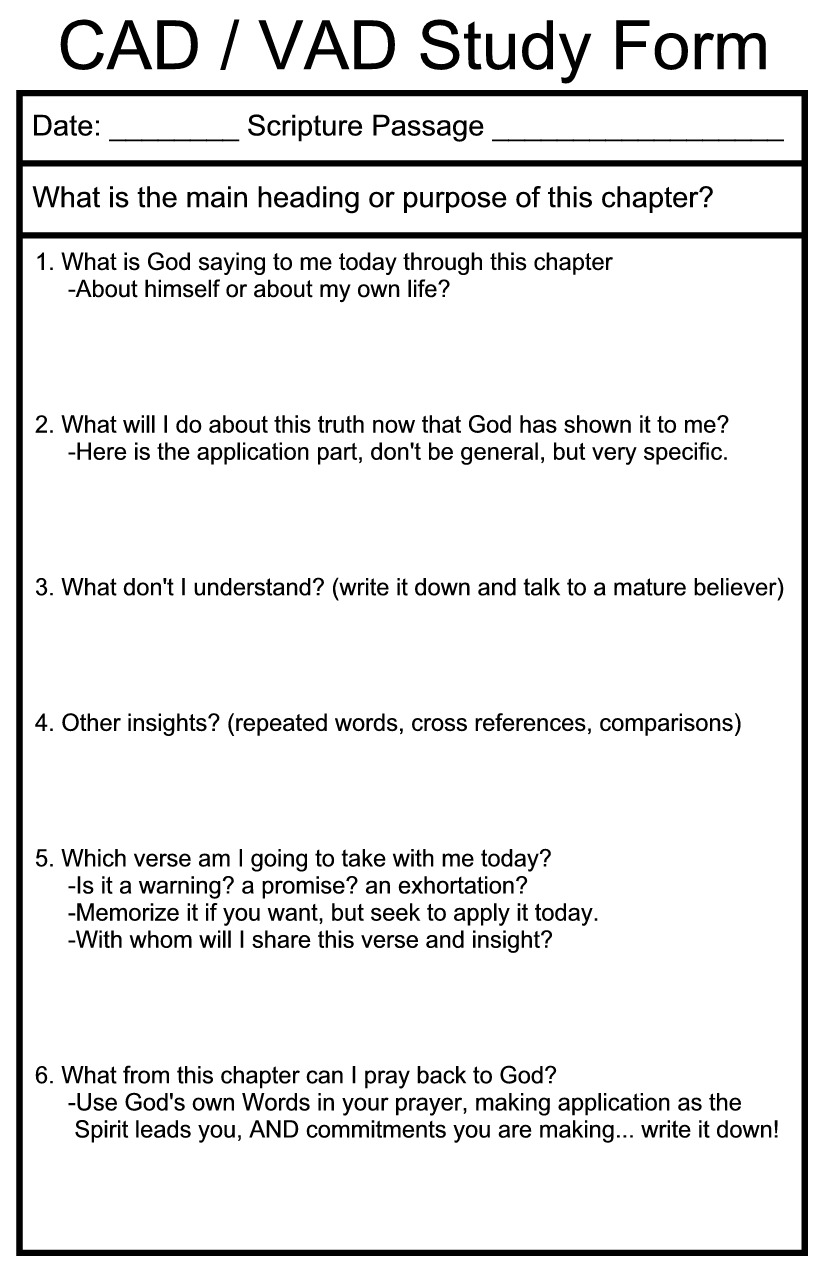In order to get the most out of personal Bible study, try using a form like this one, a Chapter A Day / Verse A Day. Read a whole chapter but focus on one verse in this chapter that really speaks to you today:
God wants the Word of Christ to richly dwell in us (Colossians 3:16) and his Word change our lives. Many times we don’t know where to begin… start in Genesis? Matthew? John? Revelation? Some say to read for content, doctrine, or instruction and rules, while others say to read the Bible devotionally. With this method you can study the Bible for APPLICATION. The emphasis is on what the Bible says, and also on what God is saying to YOU.
Where to start? How about in the gospels in order to meet Jesus fresh each day at the very beginning? John, Mark, Luke, then Matthew. You can mix up your chapters by reading from the Old Testament some weeks and then back to the New Testament.
This is not about checking off these chapters in your “read the Bible through in a year” plan, it is about seeking the God of the Bible. The idea is to meet with God daily (Luke 9:23).
This is an adaptation of CAD/VAD, 1989, College Park Ministries, Carmel IN

